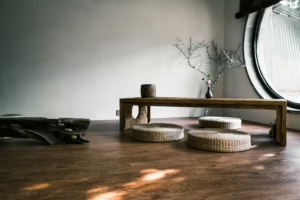If you’re used to the regularity of a monthly paycheque, then freelancing might come as a shock to the system. Making a living as a freelancer is just the tip of the iceberg. You also need to keep track of things like business expenses and take care of your taxes. Late invoices and clients who ghost you can make the whole thing a lot more stressful. After four years of making a living as a freelancer, these are the little tips that have saved my bacon more than once.
Tips for making a living as a freelancer
Take deposits
When you first start working with clients, asking for a deposit for the work is going to feel super ballsy. But if you’re going to make a living as a freelancer, you’re going to have to get tough about money. Most big agencies will ask for a deposit before starting any work, and freelancers should consider the same practice.
It protects you in the event that they decide to not pay at the end of the first month and it helps to build a system of trust. It also keeps you accountable. If the client has already handed over money, you’re going to have to step up and show your value right from the start.
Be clear about your expenses
You can’t budget if you don’t know exactly what goes out of your bank account and when. Switch all of your bills to direct debits so you know precisely how much is going to leave your account and when.
If you’re concerned about making ends meet in the beginning, look at ways to trim the fat. Get rid of that gym membership you never use. Decide if you really need Netflix, Now TV AND Amazon Prime. You can always start them up again later when you have more regular income.

Split your accounts
I currently have 4 cards in my wallet. A personal debit card, a personal credit card, a business debit card and a PayPal access card. All client invoices go directly to my business debit card. From here, I send an allowance to my personal debit card and pay off my credit card. All bills go out of my personal debit card and the actual card never sees the light of day.
All extra copywriting jobs go to PayPal which is then my spending allowance for the month. If I want more spending money, I have to take on more writing jobs, it’s that simple. I’m not saying this is the only way to do things, but you will need to find a system that works for you. Keeping track of your funds and spending is essential for living as a freelancer.
Use your overdraft wisely
It might look like free money, but it isn’t! Your overdraft should be used for emergencies and you need to make sure you are out of your overdraft at least once a month. You’ll soon be pissing money down the drain on overdraft fees and interest which isn’t what you want in your first year of living as a freelancer. If you can avoid having an overdraft, do it.
![]()
Get wise with your taxes
There are loads of things you can claim for as a freelancer which make your taxes more palatable. When you’re making a living as a freelancer, you ideally need to be saving 20% of every invoice. At the end of the tax year, your bill will probably be much lower than this when you factor in all of the deductibles, but it’s always better to overestimate than underestimate. I use a site called SimpleTax to help me keep track of everything throughout the year. It even checks your tax return for mistakes and submits it to HMRC.
Is there anything missing from this list? What advice would you give to a person just starting out making a living as a freelancer?







